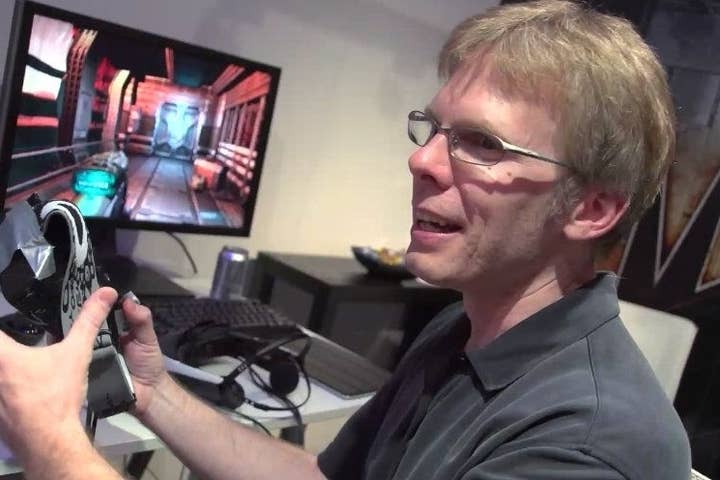John Carmack laments next-gen push
"Just as you fully understand a previous generation, you have to put it away to surf forward on the tidal wave of technology that's always moving"
John Carmack's name is synonymous with the technical evolution of gaming, but the Oculus VR CTO now feels uncomfortable with the relentless progress in console hardware.
Speaking to Wired on the 20th anniversary of the release of Doom, the genre-defining FPS he co-created with Jon Romero, Carmack recalled id Software's tendency to demand better hardware with each new release - ignoring the huge number of people with aging graphics cards to cater for the more dedicated and tech-savvy players.
With the Xbox One and PlayStation 4 now on-sale in most major territories, Carmack noted that the trend has continued, the huge audience and untapped potential of the previous generation abandoned for uncertainty and rising costs.
"The 360 and PS3 are far from tapped out in terms of what a developer could do with them, but the whole world's gonna move over towards next-gen and high-end PCs"
"Even to this day, I struggle a little bit with that," he said. "There's so much you can still do on the previous console generation. The 360 and PS3 are far from tapped out in terms of what a developer could do with them, but the whole world's gonna move over towards next-gen and high-end PCs and all these other things.
"Part of me still frets a little bit about that, where just as you fully understand a previous generation, you have to put it away to kind of surf forward on the tidal wave of technology that's always moving. That's something that we've struggled with in every generation. And now I at least know enough to recognize that some of my internal feelings or fondness for technology that I understand or have done various things with usually has to be put aside. Because data has shown over the decades that that's usually not as important as you think it is."
Carmack now has one clear regret from his time at id Software. In the push for technical excellence, the studio missed the opportunity to make more games, falling into a cycle where huge production cycles were the norm. Carmack would not comment the protracted development of Doom 4, but he did admit that establishing the core of the franchise so many years later is, "a heck of a lot harder than you might think."
"The worst aspect of the continuing pace of game development that we fell into was the longer and longer times between releases. If I could go back in time and change one thing along the trajectory of id Software, it would be, do more things more often.
"And that was id's mantra for so long: 'It'll be done when it's done.' And I recant from that. I no longer think that is the appropriate way to build games. I mean, time matters, and as years go by-if it's done when it's done and you're talking a month or two, fine. But if it's a year or two, you need to be making a different game."
The last year has not been kind to id Software. In April, reports surfaced that work on Doom 4 had essentially been scrapped and started again, and ZeniMax PR boss Pete Hines admitted that the original plans, “did not exhibit the quality and excitement that id and Bethesda intend to deliver."
In June, CEO Todd Hollenshead left the company after 17 years, with Carmack officially jumping to Oculus in November after a short period where he focused the bulk of his efforts on the nascent VR technology.









